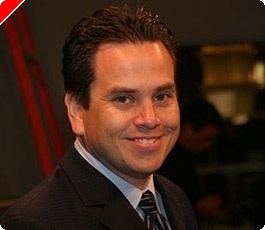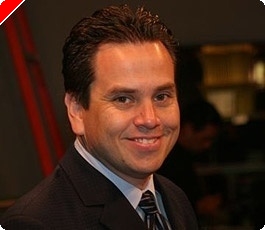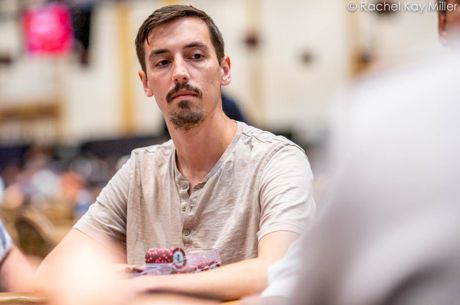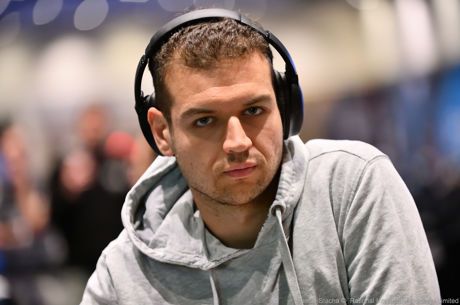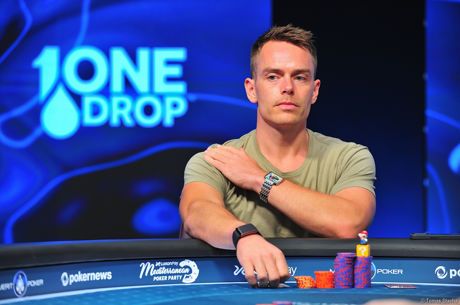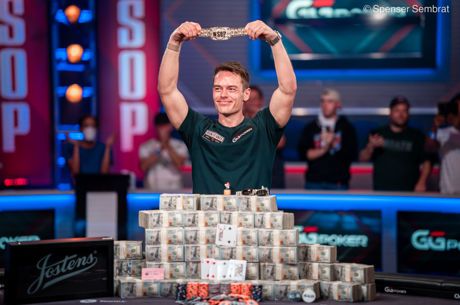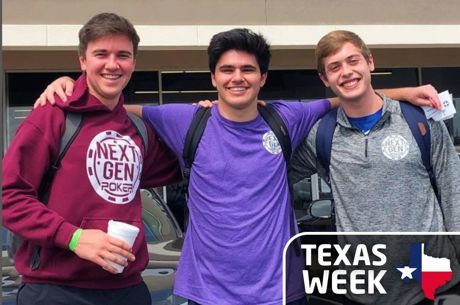The Other Side of the Felt, Vol. 10: 2002 WSOP, Before the Boom, Part 2
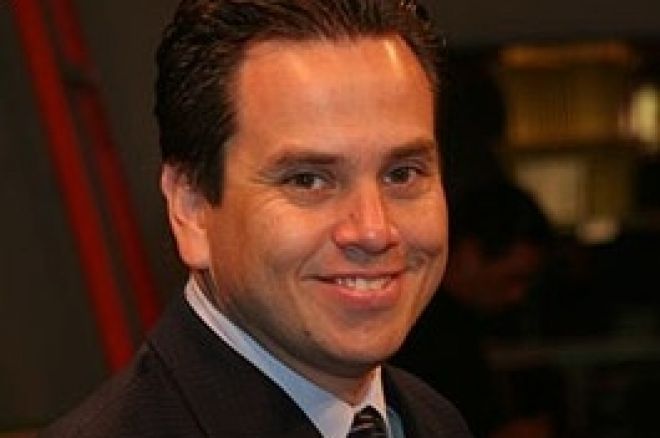
From Dealer to "Professional" Player in Two Days
The 2002 World Series of Poker kicked off with a pair of limit events, and at the time we allowed dealers to play in the tournaments. Mike Majarus had been hired to deal the WSOP, but after taking third in the Employees Limit Hold'em he decided to give the $2,000 Limit Hold'em event a try. Mike plowed through a table that included TJ Cloutier, Huck Seed, Ram Vaswani, and the player most considered to be the best limit hold'em player in the world, recent WPT Championship winner David Chiu. After collecting the $407,000 first prize, Mike vowed that he would go back to dealing but never turned another card at the 2002 WSOP.
Back to Back Flack
In Event #4, 449 players put down $2,000 each to compete in no-limit hold'em. There was no better player in the game than the eventual winner, Layne Flack. I have never seen a player more in the zone in my career and his talents during that time were compared to a young Stu Ungar and Johnny Chan of the late '80s. Layne blazed through the field despite a ruling that he has said many times was incorrect on my part. Layne put a bet in on a bluff and one of the players turned his cards over. While Layne and his biggest sweater Benny Binion Behnen said it was a dead hand �� and one of my assistants agreed that indeed it was a dead hand �� I was nearby to correctly overrule that the hand was still live but that the player would serve a penalty after the hand. The player eventually called and had the best hand, yet despite losing that pot Layne overcame it, but to this day claims I made a bad ruling.
TDA Rule #7 States:
Penalties and Disqualification: A penalty MAY be invoked if a player exposes any card with action pending, throws a card off the table, violates the one-player-to-a-hand rule, or similar incidents take place. Penalties WILL be invoked in cases of soft play, abuse, or disruptive behavior. Penalties available to the TD include verbal warnings and "missed hand" penalties. A missed hand penalty will be assessed as follows: The offender will miss one hand for every player, including the offender, who is at the table when the penalty is given multiplied by the number of rounds specified in the penalty; for the period of the penalty the offender shall remain away from the table. Tournament staff can assess one-, two-, three-, or four-round penalties or disqualification. A player who is disqualified shall have his or her chips removed from play. Repeat infractions are subject to escalating penalties.
Rule # 31 Confirms That the Hand Should Not Have Been Dead:
Exposing Cards: A player who exposes his cards with action pending may incur a penalty, but will not have a dead hand. The penalty will begin at the end of the hand.
After Layne won that event over a final table that included Tom Jacobs and Harry Demetriou, I remember him grabbing the huge bricks of $100 bills and throwing them across the room to his backer, Ted Forrest. One week later the WSOP had a $1,500 no-limit tournament that included not only the game's top stars, but many players that had not been seen up until that point. Layne had the unique talent not only to read players but to be aware of all situations around him whether he was involved or not. I can remember his ability to reconstruct situations and chip counts better than anyone I have ever seen, before or since. If I was called to his table he would generally try and take over explaining for the dealer; even though I wanted the information from the dealer, Layne would have a better explanation. When we reached the final table, Layne was not going to have such an easy ride as he had in the $2,000 event because this final table included Johnny Chan, Carlos Mortensen, TJ Cloutier and others. One hand stands out to this day because it was the only quads over quads hand I have ever seen at a final table of a major event. Phillip Marmorstein of lederhosen fame had four fours and Layne had four tens.
When it got to three-handed, Layne was playing so well that I think a little fear or at least common sense overcame Johnny, and TJ asked for a deal. Layne responded with the offer "The only deal I will make is that we play for it all!" TJ and Johnny both declined his brave offer and instead were resigned to second and third place, as Layne was just too tough in 2002.
To be fair to Layne, he did have a great 2003, winning his only World Poker Tour title in the Celebrity Invitational. He followed that up with his fourth and fifth WSOP bracelets but even he would admit that 2002 was a truly magical year for him. Layne has not won a tournament since the 2004 Monte Carlo consolation event nearly four years ago and that is just a not acceptable for a player of Layne's caliber.
Layne has spoken to me recently after hustling me for $300 on the golf course, explaining that 2002 was a time that he was indeed "in the zone" and he has every intention of getting back to that form. And even though he has had some personal problems that he has since overcome, I truly believe the sharpness is still there and a comeback is imminent. I hope for the game of poker that Layne can come back and show the world that this true character of the game is still one of the great ones.
In my next article of the series on the 2002 World Series of Poker I will cover the validation of Phil Ivey.
See you at the final table!
Matt
Matt Savage is one of the world's most recognized poker tournament directors, and has been involved with over 350 televised events including the World Series of Poker, World Poker Tour, and many others. Matt is a founder of the Tournament Directors Association, the first inductee into the Poker Managers Hall of Fame, and actor in the movie Lucky You. If you have questions about any rulings please send them to [email protected] or check out Matt's website at SavageTournaments.com.

